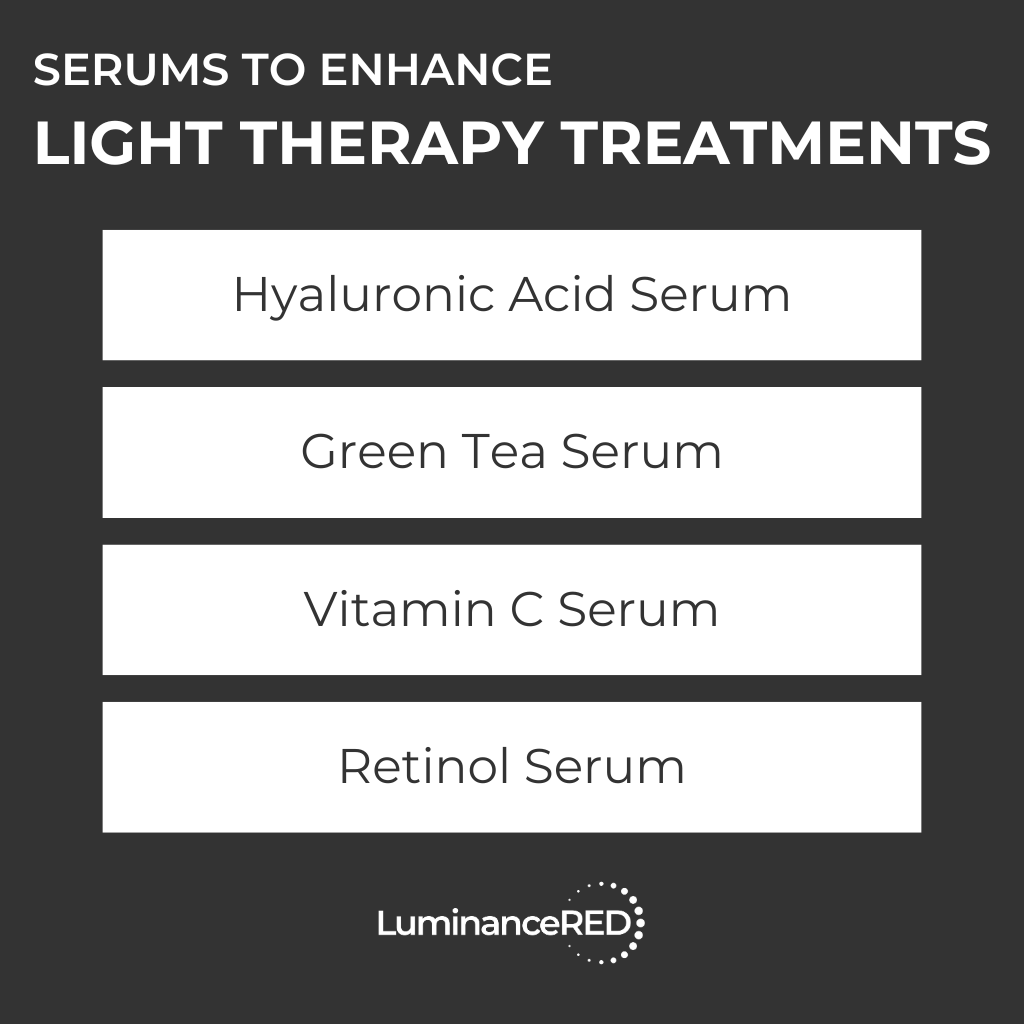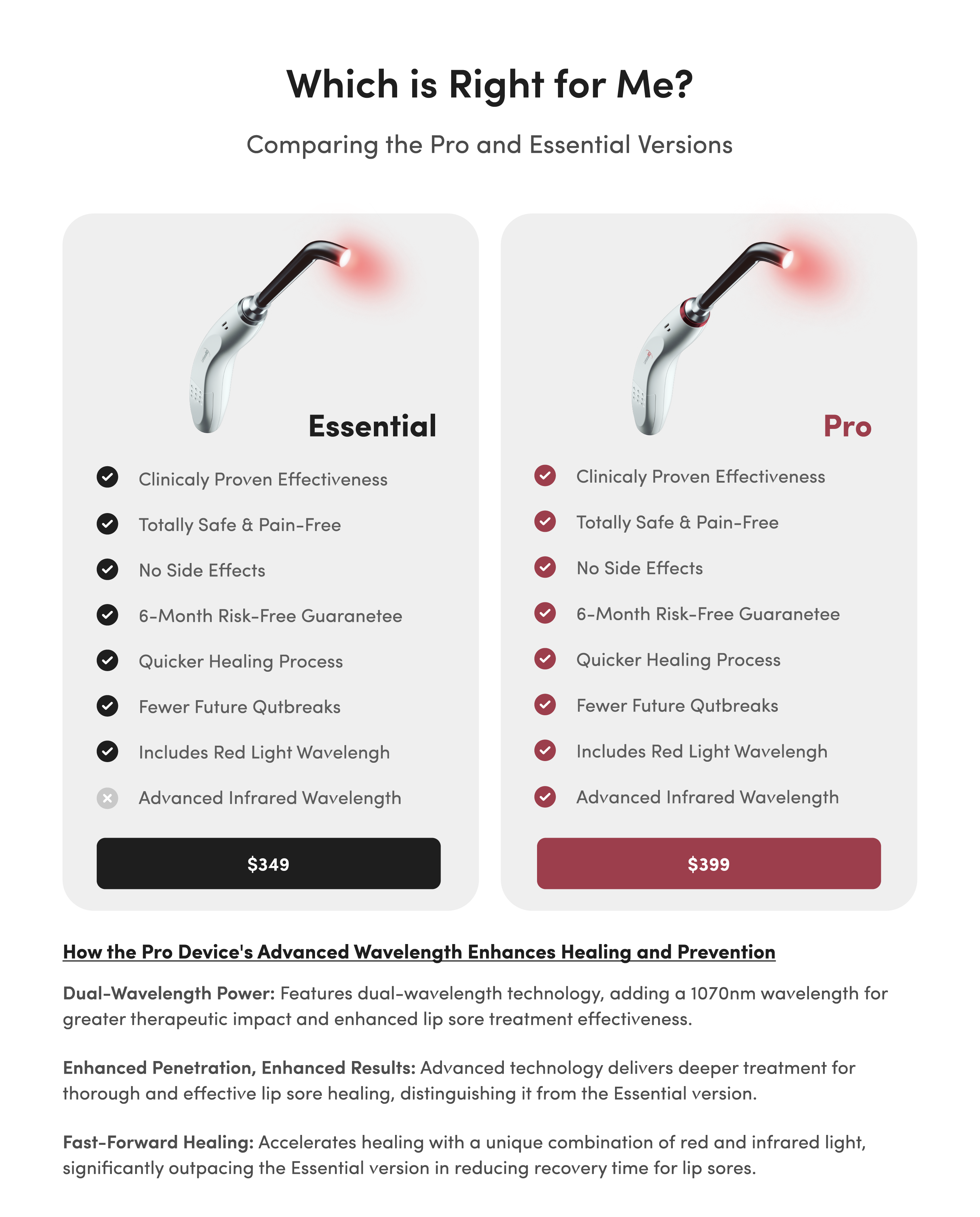What Is Deep-Penetrating LED Peptide Serum?

If you’re new to the skincare world, you may be overwhelmed by the endless number of ingredients, products, and buzzwords there are to learn. It can seem like skincare afficionados are speaking a different language entirely!
For example, perhaps you’ve heard the words “deep-penetrating LED peptide serum.” What does that collection of syllables mean, and should you incorporate it into your daily routine?
Don’t worry; we’re here to help. Below, we unpack this phrase and discuss its various applications in detail to help you decide whether deep-penetrating LED peptide serum is a good choice for your skin.
What Is Deep-Penetrating LED Peptide Serum?
First, let’s define each of the buzzwords contained in the phrase “deep-penetrating LED peptide serum.”
- Deep-penetrating. In the skincare world, “deep-penetrating” means the ingredients found in the product won’t just sit on the surface, but will penetrate the deeper layers of your skin. The ingredients then activate your skin cells to produce the desired results, whether that be adding hydration, reducing redness, etc.
- Serum. A serum is a highly concentrated skincare product designed for easy and rapid absorption into the skin. Serums are either water- or oil-based and come with a wide array of active ingredients.
- Peptide. A peptide serum includes peptides, or polypeptides, as one of its primary active ingredients. Peptides are amino acids, which are the molecules that form proteins. Keep reading to learn more about the importance of peptides in skincare.
Now you know the building blocks for the jargon that makes up “deep-penetrating LED peptide serum.” It’s also important to note that this term isn’t a product name; it’s simply a description. You won’t find a specific type of product called “deep-penetrating LED peptide serum” on the store shelf.
Moreover, as of this writing, no scientific evidence suggests that any particular peptide penetrates more deeply into your skin than another peptide, or even other skincare products or ingredients.
Occasionally, light therapy product manufacturers may use the phrase “deep-penetrating” when speaking of LED peptide serums or other types of serums. When companies tout claims like this and don’t support them with reliable sources or scientific data, take them with a grain of salt. The company is likely using the language for marketing purposes.

What Does Peptide Serum Do?
As mentioned, peptides are amino acids that come together to form proteins, which are critical to the health of the body’s tissues and organs.
Applying a peptide serum to your skin helps stimulate collagen production. Collagen is a structural protein composed of three different peptide chains. These chains come together to form a tight triple helix, the structure of which helps keep your skin strong, firm, and flexible.
If the goal is to boost collagen in the skin, then why use only collagen peptides? Your skin, it turns out, can’t absorb whole collagen proteins because the molecules are too large. However, peptides are much smaller molecules your skin can absorb to boost its collagen production.
The smaller the molecules contained in a peptide serum, the deeper the active ingredients can penetrate the layers of your skin to improve texture, tone, and elasticity from a cellular level.
A peptide serum can also strengthen your skin’s natural barrier, protecting you from external damage caused by toxins, UV rays, and even cigarette smoke. When putting your skin through any kind of harsh treatment, such as a chemical peel, microdermabrasion, or laser skin resurfacing, using a peptide serum is a great protective measure.
But what about non-abrasive treatments, like light therapy?
Unlike the examples above, light therapy is a non-invasive, gentle skin treatment with little to no side effects and an excellent safety profile. But that doesn’t mean you can’t benefit from enhanced skincare while receiving light therapy treatments.
We Need More Studies
Can a deep-penetrating LED peptide serum enhance the effects of your light therapy treatment? It seems likely, but as of this writing, no studies have been published specifically about using a peptide serum alongside light therapy.
However, much like other serums that have clinical backing on their own, there’s little reason to suspect a peptide serum would be incompatible with light therapy. If you’re worried about an interaction, try the serum on its own first, and apply your light therapy at another time.
Besides peptide serum, you can choose from many types of serum ingredients to target specific skin issues and enhance the effects of light therapy treatments. These are just a few clinically backed examples:
- Hyaluronic acid serums increase your skin’s hydration, reduce signs of aging, reduce redness, and promote healing, and appear to improve the results of red light therapy.
- Green tea serums reduce signs of aging, prevent cell damage, reduce oil production, and reduce acne breakouts, redness, and inflammation. In combination with light therapy, they may speed the effects of treatment.
- Vitamin C serums boost hydration, brightness, and collagen production, and reduce signs of aging. In combination with light therapy, they may promote wound healing and reduce inflammation and redness.
- Retinol serums reduce the frequency and severity of acne breakouts, improve skin tone, and reduce all visible signs of aging.

Deep Penetrating LED Peptide Serum: Final Thoughts
Although a deep-penetrating LED peptide serum may not have clinically explored results, there are quite a few serums that do. Read as much medical literature as you can before you choose one — it may save you some hard-earned cash.
Whenever you bring a new skincare product home, always perform an allergy test prior to using it. Apply the product to a small patch of skin before applying it to a larger or more sensitive area. Discontinue use if you experience severe burning, itching, dryness, or redness. If you have a mild reaction, you may need to use a smaller amount of product every other day until your skin adapts to the active ingredients.
If you have any doubt about a specific product or treatment regimen, schedule an appointment with your regular doctor or dermatologist for more information and specialized care.













